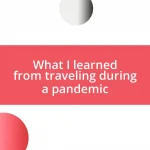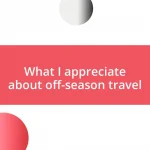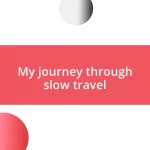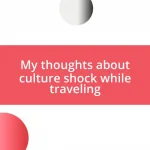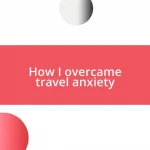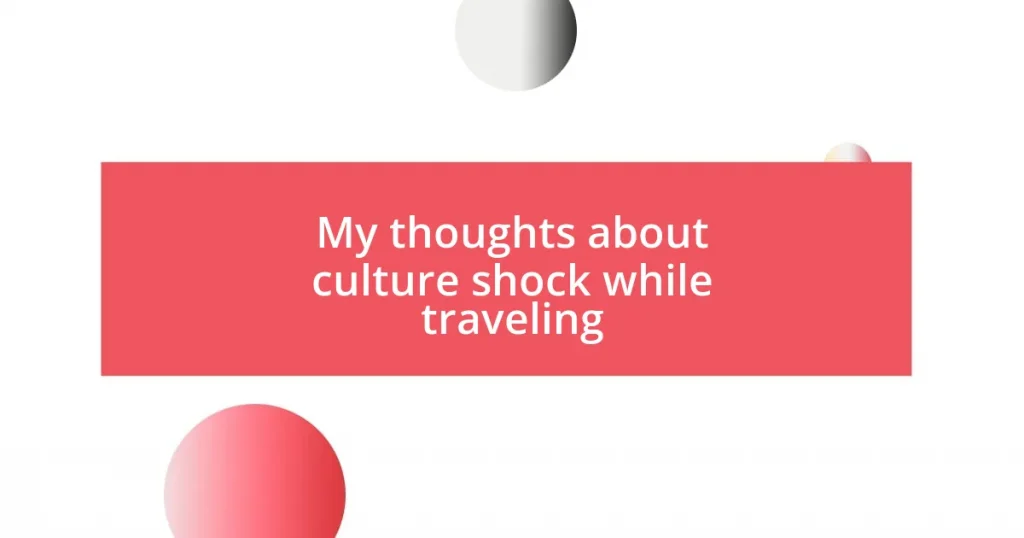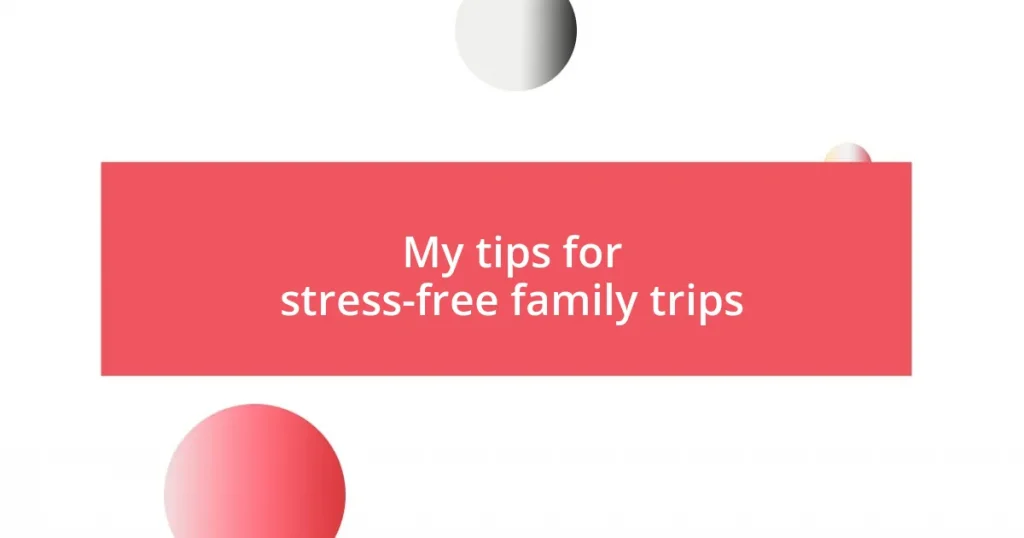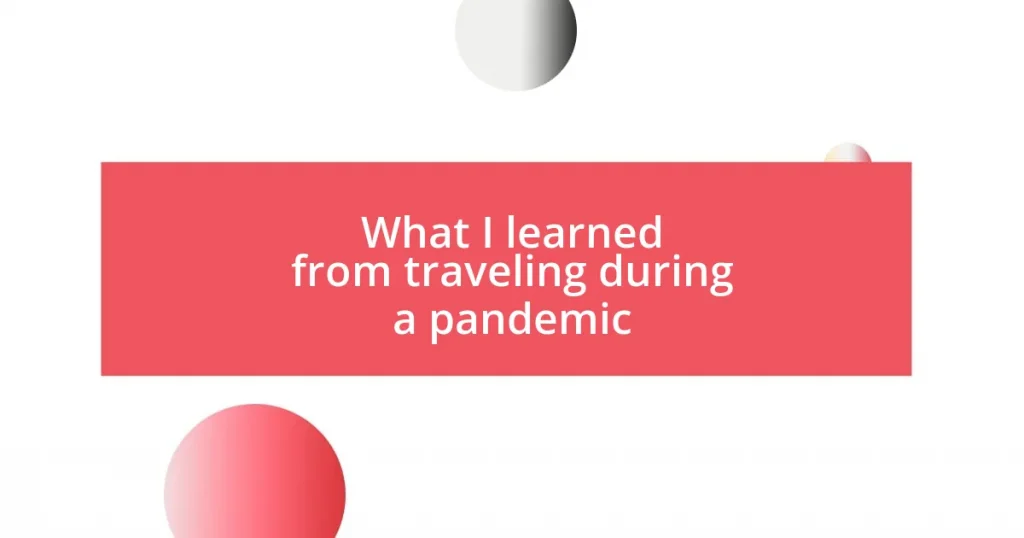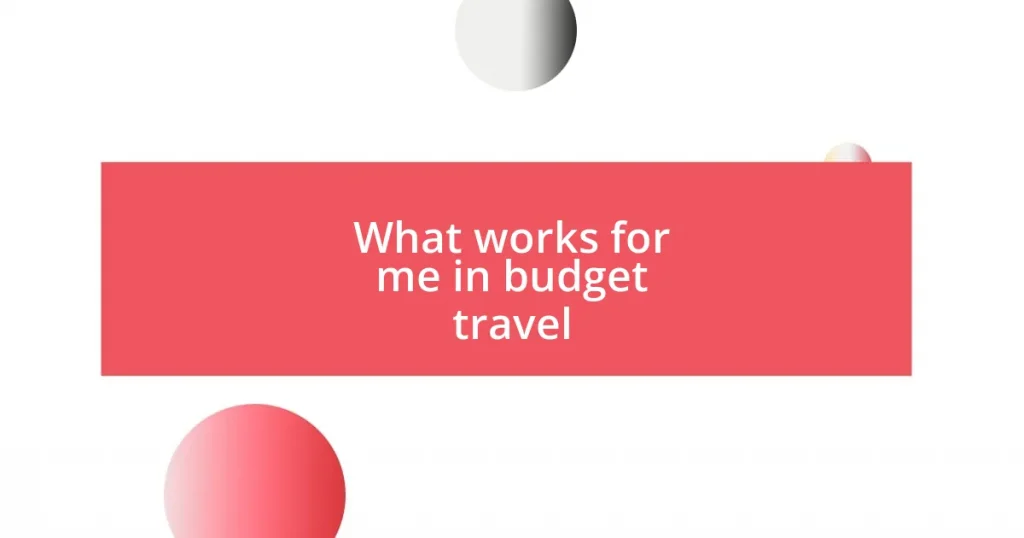Key takeaways:
- Culture shock evolves from initial confusion and anxiety to homesickness and emotional turmoil, requiring adaptation and growth.
- Identifying signs of culture shock includes emotional distress, social withdrawal, and physical symptoms like fatigue and headaches.
- Preparation for cultural differences involves researching local customs, learning basic phrases, and staying open-minded to enrich experiences.
- Positive encounters, such as cultural activities and shared experiences, can transform challenges of culture shock into profound connections and personal growth.
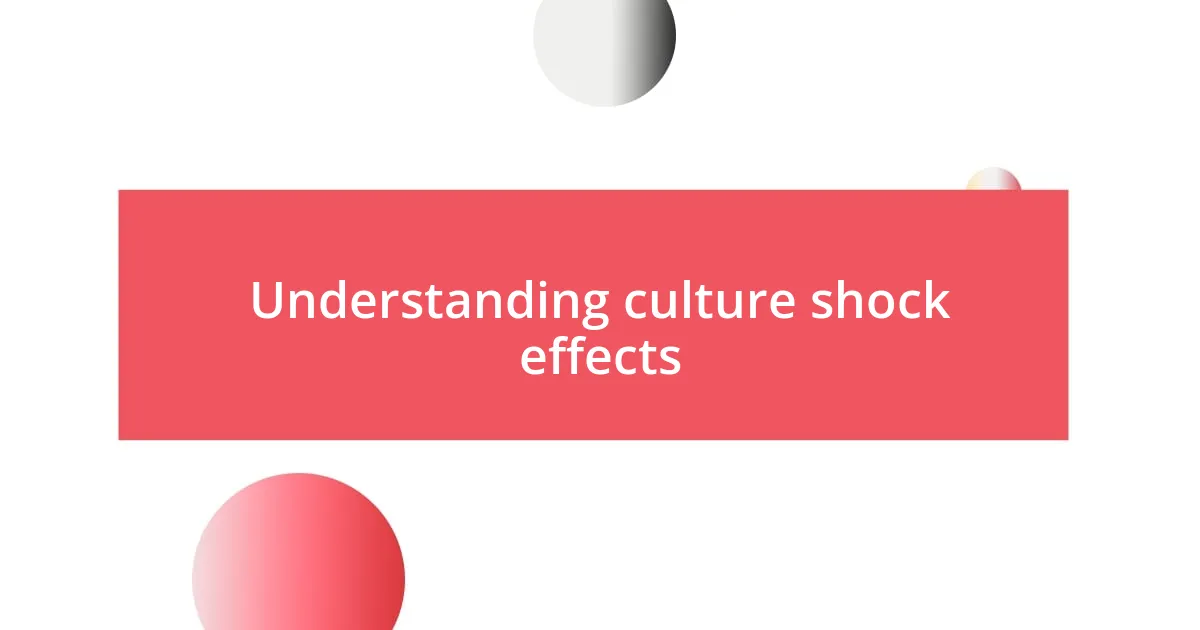
Understanding culture shock effects
Culture shock can manifest in various ways, often starting with feelings of confusion and anxiety. I remember arriving in a bustling city where the pace of life felt overwhelming. Have you ever felt that sense of disconnection, as if everything around you is in a different language, even if it’s just in your mind?
As I settled in, I discovered that culture shock doesn’t just dissipate; it can evolve, revealing deeper layers of emotional turmoil. For instance, I found that my initial excitement soon morphed into homesickness, especially when I missed familiar routines. It’s fascinating how quickly the allure of a new place can turn into a longing for the comfort of home, isn’t it?
Eventually, I learned to embrace the discomfort, viewing it not just as a challenge but an opportunity for growth. Each time I navigated a misunderstanding or experienced a moment of cultural beauty, I felt a deeper connection to the people and their ways of life. How has navigating cultural differences helped you grow during your travels?
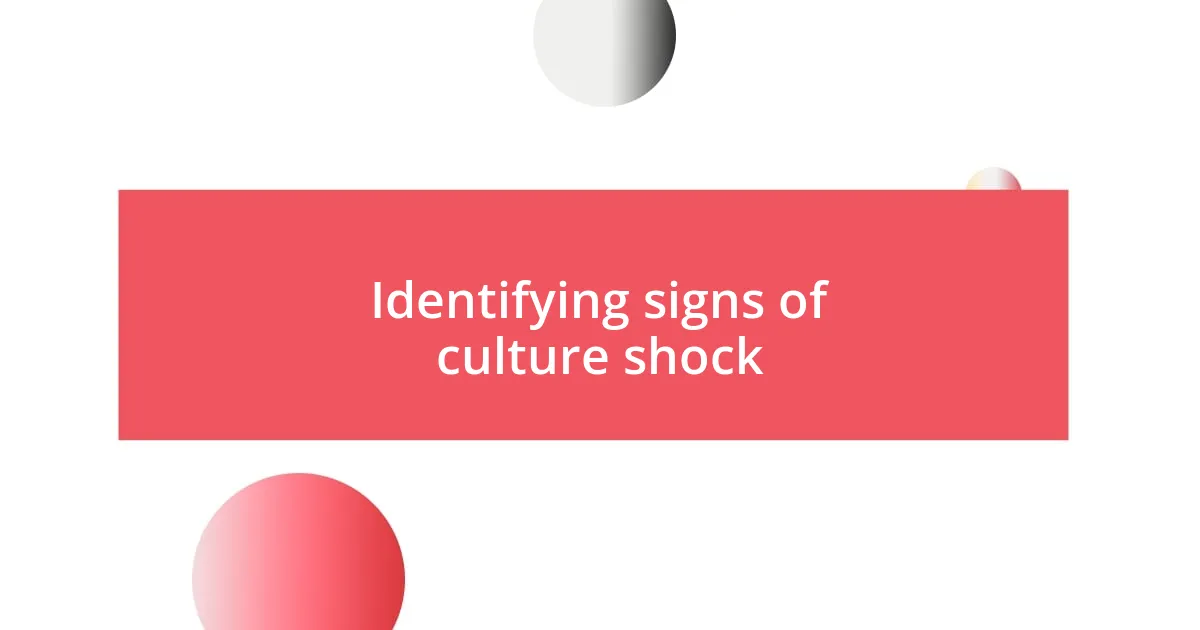
Identifying signs of culture shock
Identifying culture shock can be tricky, as it often creeps up on you in subtle ways. For me, I realized something was off when even mundane tasks like ordering food became stressful. There was a point when I stood at a street vendor, paralyzed by all the unfamiliar options, longing for the simplicity of my local favorites.
Another telltale sign is a shift in your emotional state. I distinctly remember feeling irritable while adjusting to completely different customs. What used to be minor inconveniences suddenly seemed overwhelming in a new environment. Have you ever lost patience with a situation that would typically roll off your back?
Physical symptoms can also manifest. During my travels, I experienced unexpected fatigue and headaches, which made me question my well-being. These, I came to learn, were often linked to my struggles in adapting to different cultural norms. Recognizing these signs was essential for me to understand how to navigate my experiences better.
| Sign of Culture Shock | Description |
|---|---|
| Emotional Distress | Feelings of anxiety, sadness, or irritability. |
| Social Withdrawal | A desire to isolate oneself from new experiences or people. |
| Physical Symptoms | Fatigue, headaches, or other stress-related issues. |
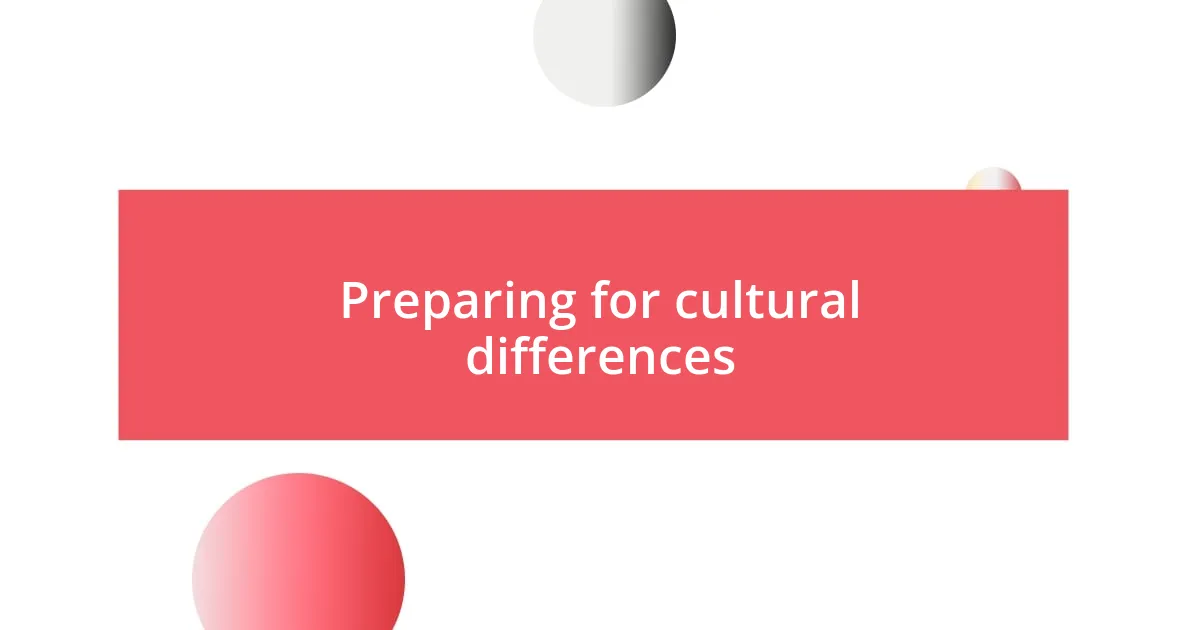
Preparing for cultural differences
Preparing for cultural differences starts long before you arrive in a new country. I remember planning my trip to Thailand, reading everything I could about local customs and etiquette. It surprised me how much I learned just by absorbing simple phrases in the language and understanding fundamental cultural practices. This preparation eased my transition significantly, allowing me to feel more connected from the moment I landed.
Here are some practical steps to help you get ready for cultural differences:
- Research Local Customs: Understanding social norms can prevent unintentional faux pas.
- Learn Basic Phrases: A few words in the local language can open doors and foster goodwill.
- Stay Open-Minded: Embracing different ways of life will enrich your experience.
- Connect with Locals: Engaging with residents can provide invaluable insights and foster meaningful relationships.
- Visualize Scenarios: Anticipating different situations can better prepare you emotionally.
By taking these steps, you create a solid foundation that can make navigating cultural differences much smoother.
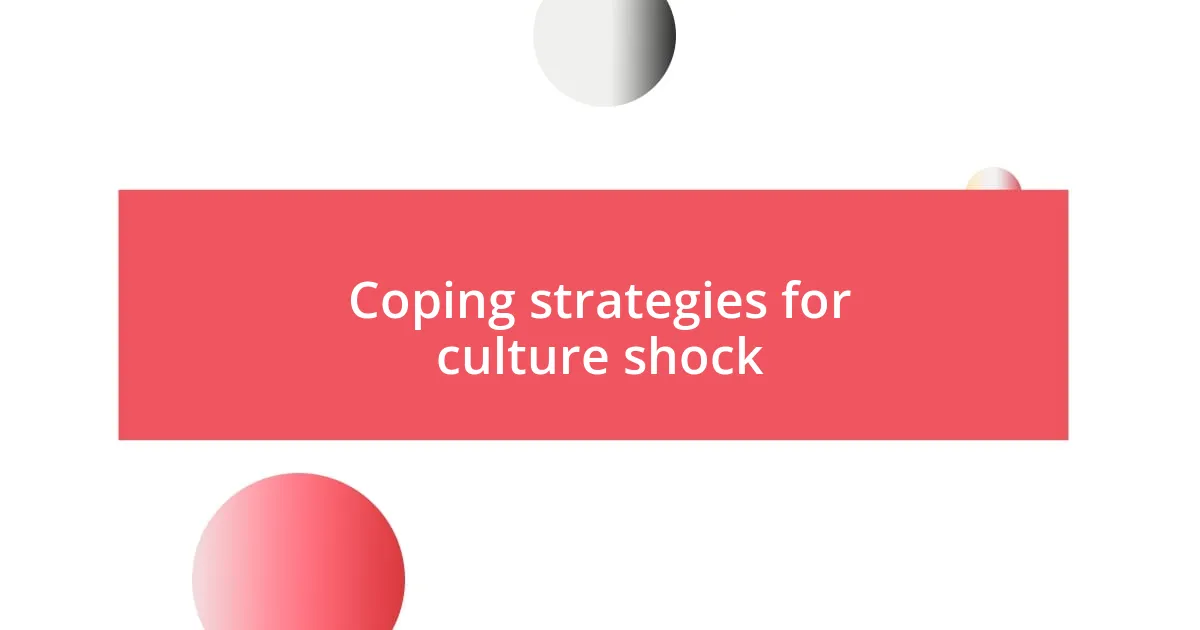
Coping strategies for culture shock
Finding effective coping strategies for culture shock is essential for a smoother transition in a new environment. One approach I’ve found particularly helpful is to keep a journal during my travels. Documenting my thoughts and feelings allowed me to process my emotions. Looking back at those entries, I often see patterns that give me clues on how to tackle challenges and embrace new experiences.
Another strategy that I swear by is immersing myself in local activities, whether it’s a cooking class or a community event. I’ll never forget joining a traditional dance workshop in Bali. Initially, I felt out of my element and apprehensive. But as I engaged in the rhythm and movements, my discomfort faded. Have you ever stepped out of your comfort zone only to discover newfound joy? Connecting with others through shared experiences can significantly diminish feelings of isolation that often accompany culture shock.
Reaching out to fellow travelers has also been a lifesaver for me. I remember striking up a conversation with someone at a local café who was experiencing similar struggles. We bonded over our shared bewilderment and exchanged tips that turned our challenges into funny memories. Finding support through social connections can make a world of difference—it reassures you that you’re not alone in this journey.
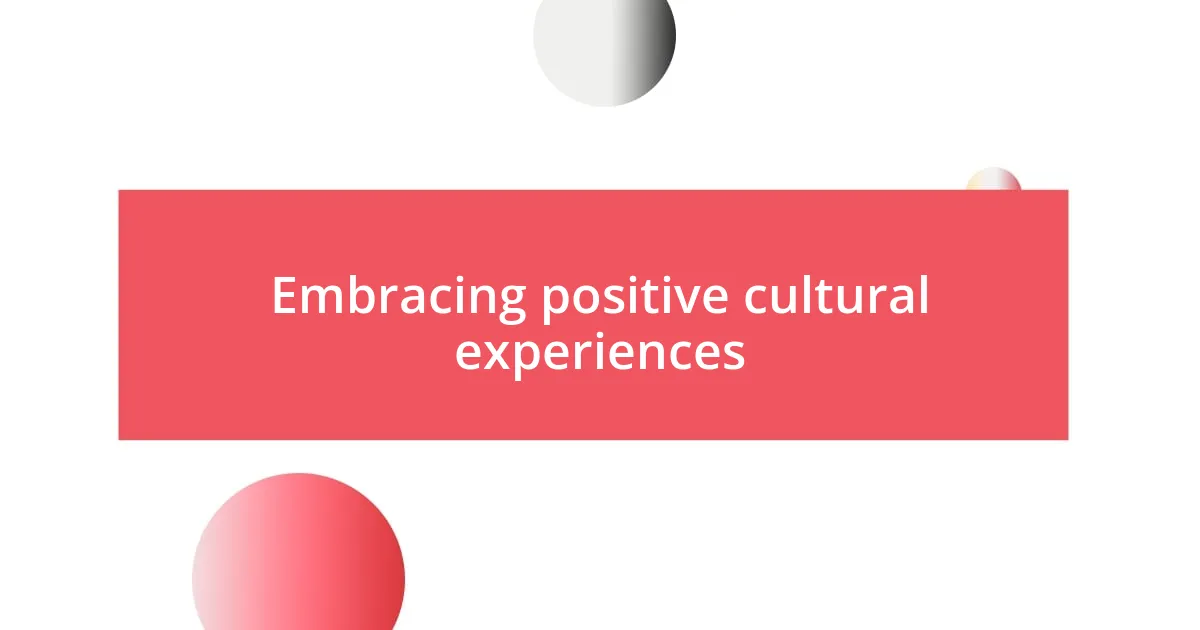
Embracing positive cultural experiences
Experiencing positive cultural moments can be transformative, making the challenges of culture shock worthwhile. I remember visiting a vibrant market in Marrakech, where the colors and sounds ignited my senses. The warmth of the vendors, who invited me to taste their spices and sweets, left me feeling welcomed and curious. Isn’t it incredible how a simple interaction can turn unfamiliarity into excitement?
Another memorable experience for me was participating in a traditional tea ceremony in Japan. As I sat in serene silence, I was struck by the simplicity and mindfulness of the ritual. This was not just about drinking tea; it was a profound moment of connection and respect. I walked away with a deeper appreciation for their culture, which encouraged me to embrace mindfulness in my own life. Have you ever found moments that shifted your perspective in such a magical way?
Embracing these positive experiences helps to balance the initial discomfort of culture shock. Once, while volunteering at a community garden, I bonded with locals over shared laughter and stories. Those interactions reminded me of our common humanity, highlighting that beyond the differences in language and custom, we often share similar hopes and dreams. Each positive encounter made me more open to another layer of culture, further enriching my travels.
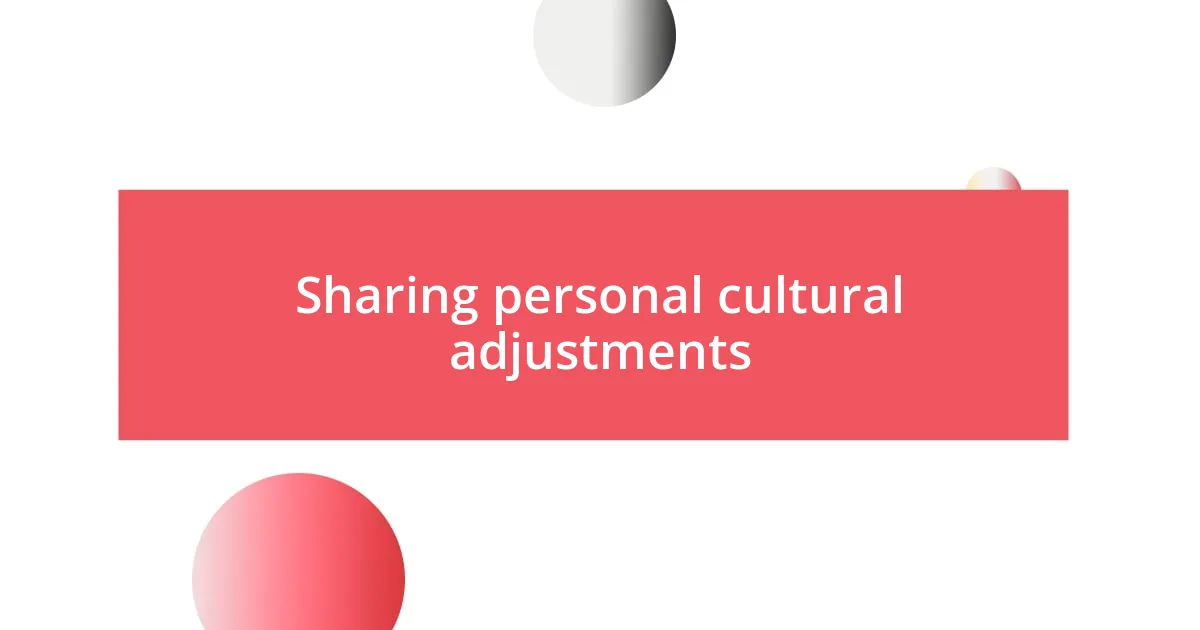
Sharing personal cultural adjustments
When it comes to adjusting to a new culture, I quickly realized that letting go of my preconceived notions was essential. There was a time, for instance, when I visited a small village in Italy. Initially, I struggled with the slower pace of life compared to my bustling city routine. However, as I allowed myself to slow down, I found joy in simple things, like sipping espresso while watching the world go by. Have you ever felt an unexpected peace in moments you thought you’d find tedious?
Finding local friends was another pivotal adjustment for me. During a solo trip to Mexico, I was hesitant to approach a group of locals at a market. But when I finally took that leap, I discovered genuine warmth and camaraderie. They invited me to join their picnic by the beach, and I spent hours learning about their traditions and sharing stories from my own life. That interaction transformed my experience and reminded me that connections can bridge even the widest cultural gaps. What connections have you made that changed your perspective?
Lastly, adapting my communication style proved essential while navigating cultural differences. I recall a moment in France when I misinterpreted a gesture and inadvertently offended someone. Instead of shying away, I chose to smile through the awkwardness and apologize in my broken French. To my surprise, we ended up laughing together, which softened the situation. That experience taught me that being open to learning and embracing mistakes can foster genuine connections. Have you ever found humor in a miscommunication that led to a deeper understanding?
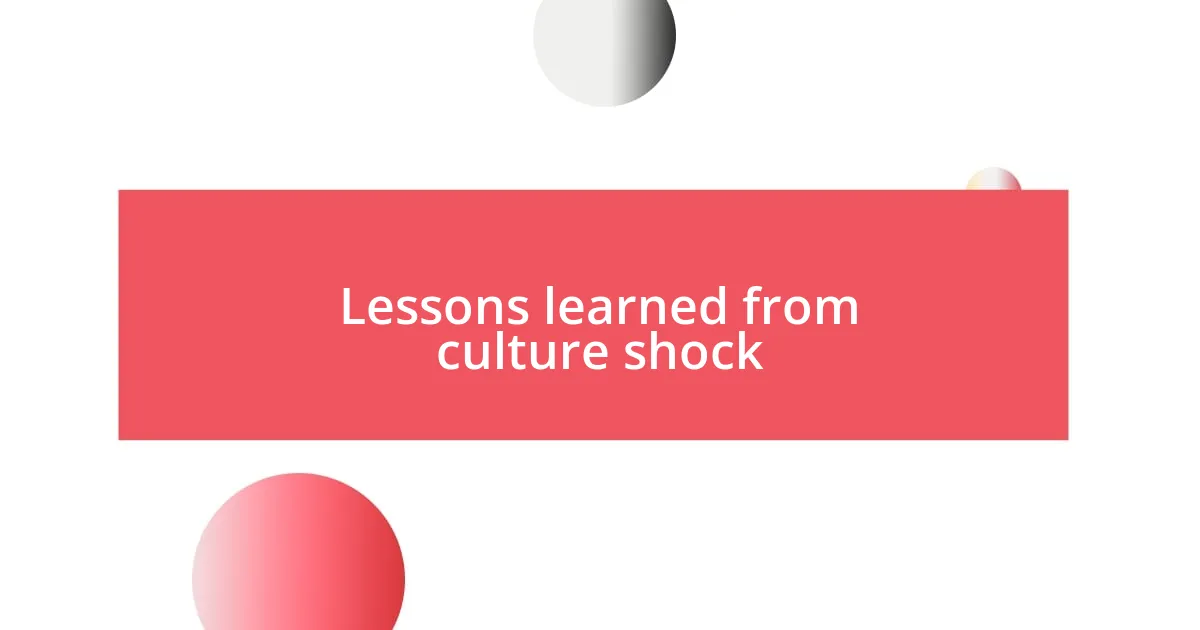
Lessons learned from culture shock
One major lesson I learned from culture shock is the importance of patience. I remember feeling overwhelmed in a bustling market in India, where the sensory overload almost left me paralyzed. That initial discomfort taught me to take a step back, breathe, and appreciate the beauty of chaos unfolding around me. Isn’t it interesting how those moments of uncertainty can foster a deeper understanding of ourselves and the world?
Another realization hit me during a quiet evening in Iceland. Surrounded by stunning landscapes, I found my mind racing with comparisons to home, clinging to familiar comforts. But as I allowed myself to fully embrace the stark beauty of my surroundings, I discovered a profound sense of peace and gratitude. Have you ever noticed how stepping outside your comfort zone can lead to unexpected joy?
Embracing vulnerability became a crucial part of my journey through culture shock. There was a time when I found myself lost in the winding streets of Barcelona, feeling utterly frustrated and embarrassed. However, I decided to ask a friendly passerby for directions. That simple act not only helped me find my way but also opened the door to a delightful conversation about our shared love for travel. It struck me then: being vulnerable can transform fear into connection. How often do we let fear hold us back from meaningful interactions?

